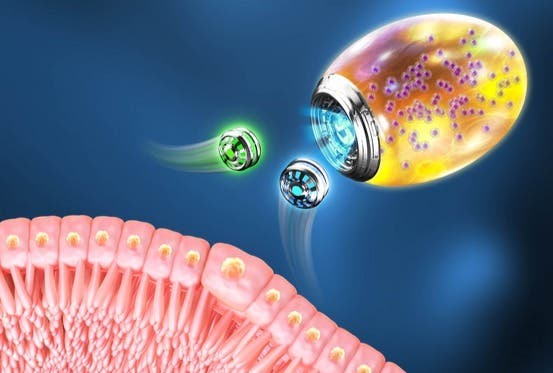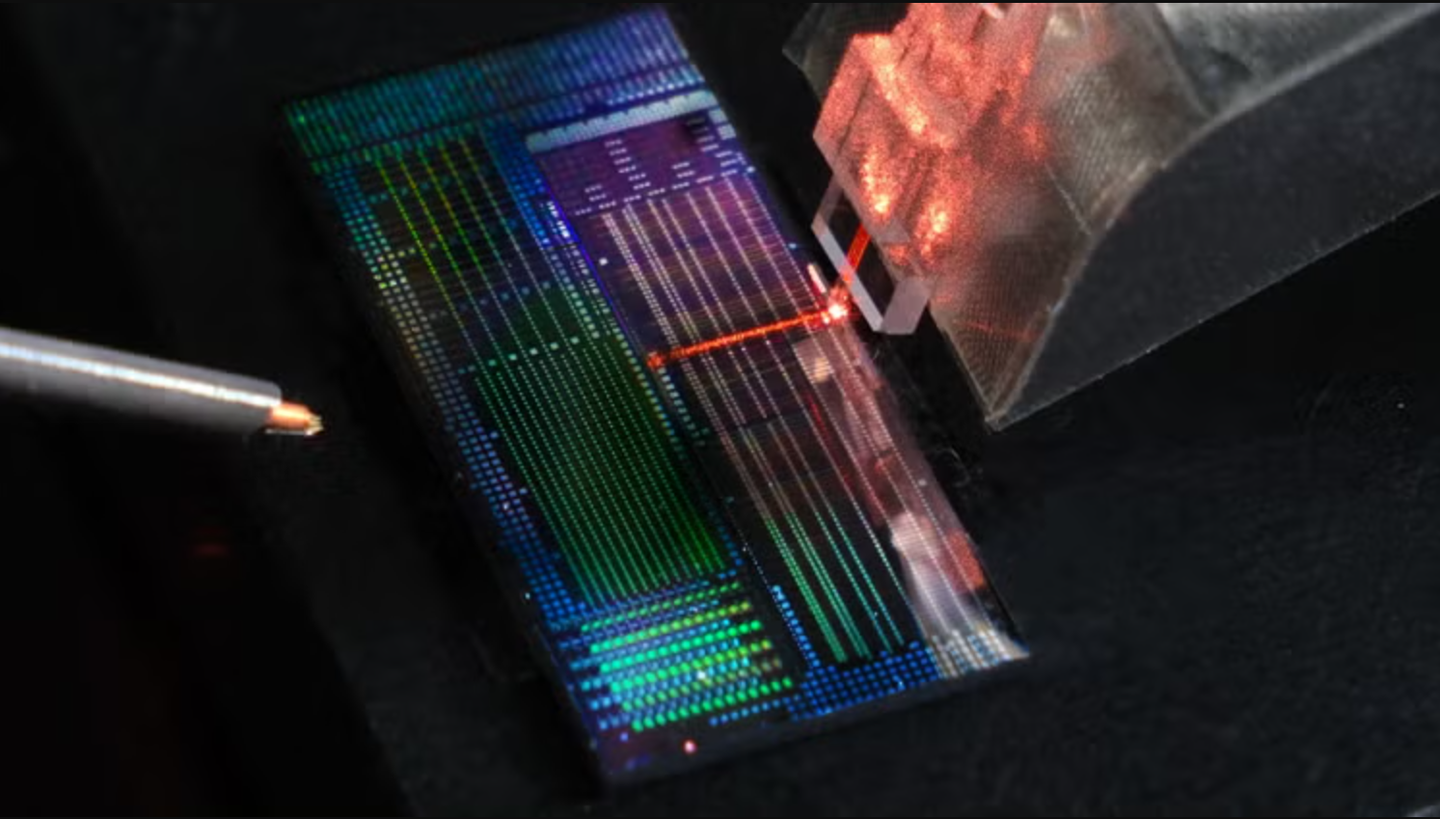Self-propelled autonomous nanorobots precisely deliver medication to treat inflammation
Gastrointestinal inflammation, such as chronic gastritis and inflammatory bowel disease, is a complex inflammatory disorder of the GI tract.

[Feb. 23, 2023: ZHANG Xiaomin, Shenzhen Institute of Advanced Technology]
Yeast micro/nanorobots utilize twin-engine to self-propel in gastrointestinal intraluminal and extraluminal environments. (CREDIT: SIAT)
Gastrointestinal (GI) inflammation, such as chronic gastritis and inflammatory bowel disease, is a complex inflammatory disorder of the GI tract and increases the risk of cancer. Current delivery systems are immobile and rely on passive diffusion to reach inflamed sites, which leads to frequent dosing and potentially severe side effects that can adversely affect patients’ adherence to medication. Hence, there is an immense unmet clinical need for active and targeted GI inflammation therapies.
Micro/nanorobots are miniaturized smart devices that can convert internal energy or external physical stimuli into mechanical force to generate autonomous motion. One of the main applications of micro/nanorobots is targeted drug delivery because they can actively shuttle through the human body, driven by various propulsion modes, to reach diseased regions that are difficult to access by conventional administration methods.
Among these devices, chemically/biochemically propelled micro/nanorobots, in particular, show great potential for in vivo GI inflammation applications owing to their co-option use of biocompatible endogenous fuels (6).
Micro/nanorobots with self-propelling and -navigating capabilities have attracted extensive attention in drug delivery and therapy owing to their controllable locomotion in hard-to-reach body tissues.
However, developing self-adaptive micro/nanorobots that can adjust their driving mechanisms across multiple biological barriers to reach distant lesions is still a challenge.
Related Stories:
Recently, a research team led by Prof. CAI Lintao from the Shenzhen Institute of Advanced Technology (SIAT) of the Chinese Academy of Sciences has developed a twin-bioengine yeast micro/nanorobot (TBY-robot) with self-propelling and self-adaptive capabilities that can autonomously navigate to inflamed sites to provide gastrointestinal inflammation therapy via enzyme-macrophage switching (EMS).
This study was published in Science Advances.
The researchers constructed the TBY-robot by asymmetrically immobilizing glucose oxidase and catalase onto the surface of anti-inflammatory nanoparticle-packaged yeast microcapsules. At a homogeneous glucose concentration, the Janus distribution of enzymes can catalyze the decomposition of glucose to generate a local glucose gradient that induces TBY-robot self-propelling motion.
EMS delivery of TBY-robots for long-distance transport across multiple biological barriers. (CREDIT: SIAT)
In the presence of an enteral glucose gradient, the oral TBY-robots move toward the glucose gradient to penetrate the intestinal mucus barrier and then cross the intestinal epithelial barrier by microfold cell transcytosis. "We found that TBY-robots effectively penetrated the mucus barrier and notably enhanced their intestinal retention using a dual enzyme-driven engine moving toward the enteral glucose gradient," said Prof. CAI.
After in situ switching to the macrophage bioengine in Peyer's patches, the TBY-robots autonomously migrate to inflamed sites of the gastrointestinal tract through chemokine-guided macrophage relay delivery. "Encouragingly, TBY-robots increased drug accumulation at the diseased site by approximately 1000-fold, markedly attenuating inflammation and ameliorating disease pathology in mouse models of colitis and gastric ulcers," said Prof. CAI.
EMS delivery of TBY-robots for long-distance transport across multiple biological barriers. (CREDIT: SIAT)
This twin-bioengine delivery strategy is a sequence-driven process using EMS, with Peyer's patches as transfer stations. This process can precisely transport therapeutics across multiple biological barriers to distant, deep-seated disease sites.
"The transport route is similar to that of the Express Mail Service, which precisely delivers parcels to a distant destination using different transportation facilities," said Prof. CAI. These self-adaptive TBY-robots represent a safe and promising strategy for the precision treatment of gastrointestinal inflammation and other inflammatory diseases.
Note: Materials provided above by Shenzhen Institute of Advanced Technology. Content may be edited for style and length.
Like these kind of feel good stories? Get the Brighter Side of News' newsletter.



